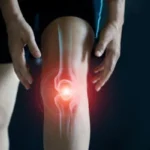Every golfer knows that the right equipment can make a big difference in your game. But do golf balls make a difference handicap? The answer is yes! While any ball you use will still be a golf ball, different models of golf balls are designed for different golfers.
Therefore, it’s essential to understand the differences between each type of ball and how they affect your game—and, ultimately, your handicap. So let’s look at how golf balls can make a difference in your handicap.
The Different Types of Golf Balls
Golf balls come in three main categories: two-piece, three-piece, and four-piece. Two-piece golf balls are made of a rigid core and soft cover pieces and are usually less expensive than other kinds of balls.
They tend to provide more distance off the tee but less spin when approaching the green. Three-piece golf balls are usually more expensive and consist of a soft core, mantle layer, and cover layer.
They offer more spin around the greens but may sacrifice some distance off the tee compared to two-piece models. Four-piece golf balls have an inner core surrounded by two layers of the mantle and covered with an outer mantle layer for ultimate control around the greens.
Also Read: How Much Do Range Golf Balls Cost?
The Role of Compression in Golf Balls
The compression of a golf ball is one of the most important factors to consider when shopping for new ones. Compression measures a golf ball’s hard or soft when hit with a driver or iron.
The lower the compression rating, the softer the ball will be, and vice versa. This affects how far and where it goes when struck by a club. It also affects the spin rate, trajectory, and launch angle.
Low-compression balls (such as those with ratings between 50 and 70) are best for beginners or high-handicap players because they offer more forgiveness off the tee and provide better distance control with irons.
On the other hand, high-compression balls (with ratings above 90) are better suited for advanced players who want more control over their shots since they tend to produce less backspin off the tee but more spin around the greens.
Also Read: How To Clean Dirty Golf Balls | 4 Pro Ways
Do Golf Balls Make A Difference Handicap

Your handicap is determined by how well you play over 18 holes compared to par for that course. Selecting the wrong kind of ball could lead to inaccurate scores or even disqualification from specific tournaments if it does not conform to USGA standards or regulations specific to that tournament’s ruleset (e.g., no metal woods).
Therefore, choosing a ball that suits your playing style and helps you achieve consistent results on each hole is essential. For example, if you typically struggle with controlling your shots around the green, selecting a four-piece ball would be beneficial as it offers more control at slower swing speeds than a two or three-piece model would provide.
Likewise, if you tend to hit longer drives but need more backspin on shorter shots like pitch shots or chips around the green, then choosing a three-piece model might be best for you as they offer more spin while sacrificing some distance off the tee compared to two-piece models.
Also Read: How Many Number Of Dimples On a Golf Ball | A Golfer’s Guide?
Choosing a Golf Ball That Suits Your Game
Choosing a golf ball depends on what works best for your game. You should experiment with different types of balls—low-compression, mid-compression, high-compression—and see which gives you the best results in terms of accuracy, distance, and overall feel.
You may even find that you prefer one type over another, depending on the shot you’re trying to hit. For example, if you’re looking for extra distance off the tee, then low-compression balls may be your best bet; however, if you need more spin around the green, then high-compression balls might be better suited for your needs.
Also Read: Are Colored Golf Balls Legal?
Bottom Line:
Do golf balls make a difference handicap? while there isn’t one perfect ball for all players out there, understanding how each type affects your game can help you decide which kind is best suited for your playing style and ability level; this could help lower your handicap in turn!
Ultimately, choosing the right type of ball can save strokes throughout every round by helping you hit better approach shots into greens and get closer putts on average than using an incorrect model would produce.
So whether you’re new to golf or simply looking for ways to improve your game, understanding which type of golf ball best suits your needs is essential in taking steps towards lowering your score – and ultimately improving your handicap!



